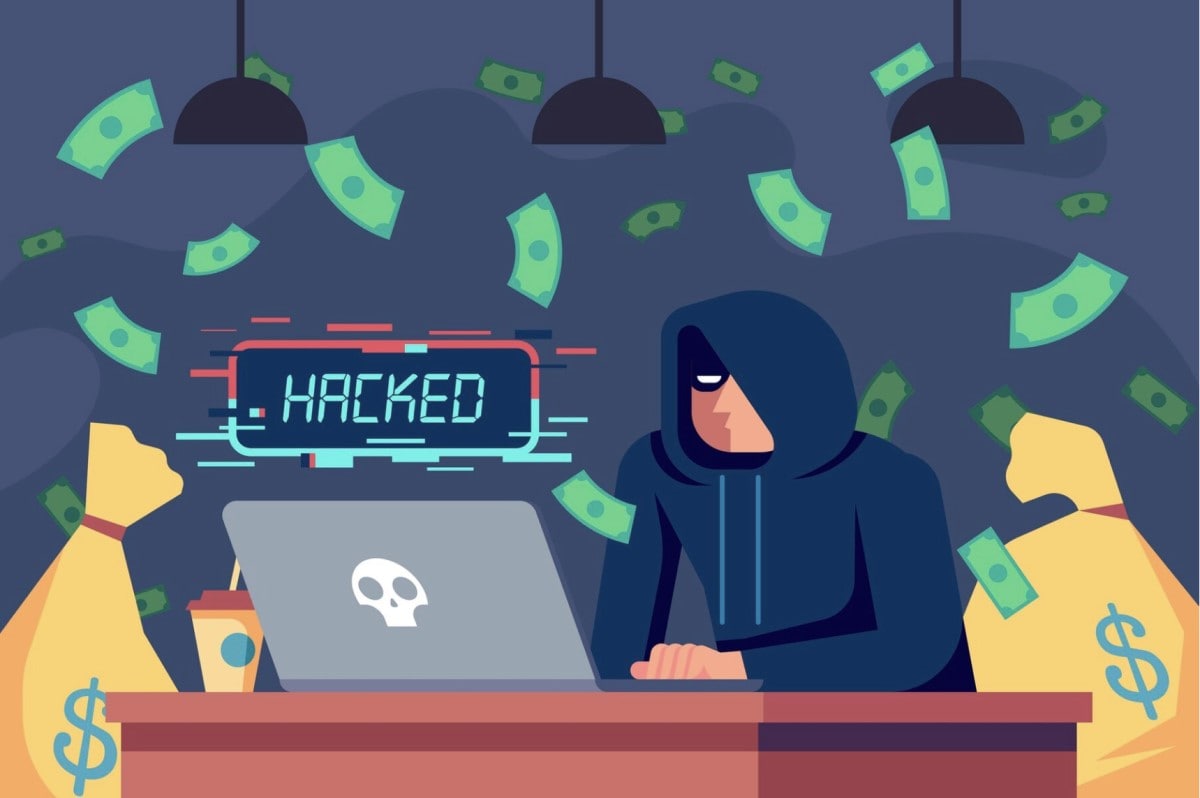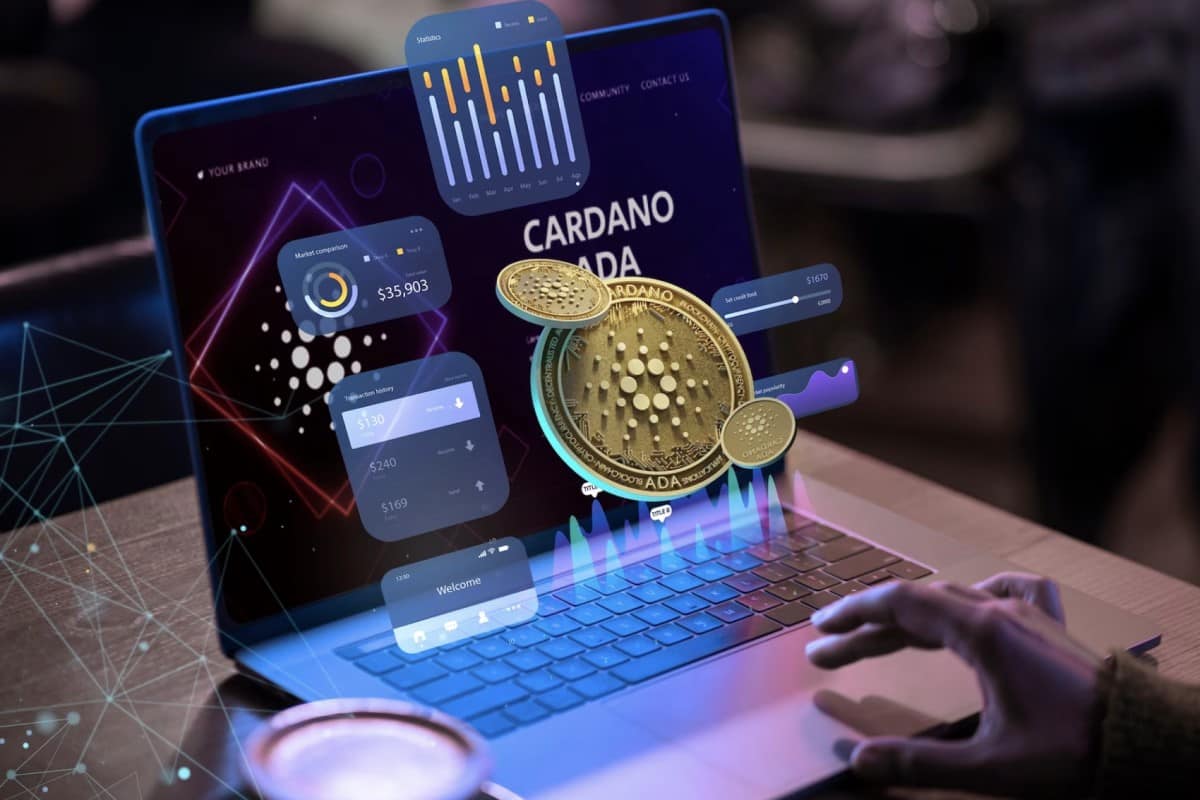How to Avoid Common Cryptocurrency Scams in 2024

The surge in cryptocurrency values has attracted numerous investors and created opportunities for scammers. Did you know that more than $4 billion was lost to crypto scams by investors just last year? If you've been a victim of crypto trading scams, there's potential for recovering your funds. The digital currency world is filled with cryptocurrency scams and scammers, from ICO scams to phishing schemes.
Understanding the warning signs and tips to avoid these scams is crucial, as they can endanger your finances and compromise your identity. Below, we will delve into 7 common crypto scams you should be vigilant of. We'll also provide working tips on how to avoid scams in cryptocurrency.
What is a cryptocurrency scam?
A scam in cryptocurrency is a deceptive scheme that tricks individuals or organisations into giving away their digital assets. These scams take various forms and often exploit emotions such as fear or greed.
Cryptocurrency scams are distinct due to the industry's nascent nature. The complexity of blockchain technology leaves many people vulnerable to scammers, as they may not fully comprehend how to safeguard themselves. Additionally, the perceived anonymity of blockchain transactions makes crypto particularly appealing to those with malicious intentions.
Types of crypto scams to watch out for

The crypto industry is susceptible to scams due to several factors that make it attractive but also pose significant risks:
- Transactions on a blockchain are pseudonymous and traceable to digital wallets but not necessarily to individuals.
- Blockchain transactions, even illicit ones, generally cannot be reversed.
- Cryptocurrency regulation is lacking in most jurisdictions, allowing scammers to operate with impunity where regulations are weak or non-existent.
- Due to its complexity, many crypto holders do not fully understand blockchain technology, which creates opportunities for malicious actors to exploit it.
- Investors seeking quick riches may be drawn to risky digital assets and become more susceptible to offers that seem too good to be accurate due to greed clouding their judgment.
- The rapid growth of cryptocurrency as an asset class and industry makes it challenging for investors to monitor new market entrants and discern between legitimate opportunities and clever scams.
Cryptocurrency scams can manifest in various forms; awareness of the most common crypto scams can help reduce the risk of falling victim.
Fake ICOs, wallets, websites, apps

ICO scam bears all the hallmarks of a genuine ICO but lacks the necessary technology or infrastructure. It's akin to introducing a coin that exists only in name. Genuine ICOs aim to introduce a new cryptocurrency to the public for the first time, expecting developers to use the proceeds to bolster the cryptocurrency network. Fake ICOs culminate in developers absconding with the funds raised from the ICO, exposing it as deceitful.
To avoid fake ICO scams, research the team behind the initial coin offering, their project roadmap, and the token's use cases. Do not opt for ICOs that promise guaranteed returns.
A fake wallet scam deceives users into believing they use an authentic digital wallet to store their assets. The fake crypto wallet prompts users to input their private keys—information that should never be disclosed—and scammers exploit them to steal users' crypto holdings. Counterfeit wallet apps may reside in app stores or be promoted through phishing emails.
Numerous users were affected by an imitation of Trezor's digital wallet on the Google Play store. Trezor is renowned for producing hardware wallets, and this forged version closely resembled Trezor's mobile app.
Only download wallet apps from the official website or app store to avoid the fake crypto wallet scam.
Since various cryptocurrencies have distinct apps as digital payment methods, cybercriminals can adeptly replicate them, too. In 2021 alone, there were over 300,000 downloads of a fake app designed to steal banking credentials from victims once installed, leading unsuspecting users directly into financial loss due to sending payments directly to these crypto scammers.
To avoid the fake crypto wallet app scam, only download apps from trusted sources, such as the official website or app store.
Giveaway cryptocurrency scams
Giveaway scams are a blend of impersonation and social media cryptocurrency fraud. These scams involve cybercriminals enticing victims to send them money with the false promise of multiplying the payment. For instance, a fraudulent social media account posing as a celebrity might post about doubling the cryptocurrency followers send. However, followers who send money will lose their investment to scammers without any chance of recovery.
To avoid giveaway cryptocurrency scams, approach all giveaways and offers on social media with scepticism. Avoid placing trust in reply messages containing screenshots, as images can be manipulated or forged. Prioritise using a reputable search engine to conduct thorough research on any organisation reaching out to you through social media channels.
Phishing cryptocurrency scams
Phishing scams, a classic cyberattack method, frequently occur through email and typically involve a request for money. These deceptive messages are often sent by cybercriminals pretending to be reputable entities, making phishing scams akin to impersonation schemes.
To avoid cryptocurrency phishing scams, avoid unexpected requests for your private keys or other sensitive details. Always verify the legitimacy of a website by double-checking its URL before entering any information. Additionally, use two-factor authentication (2FA) whenever available and ensure your computer's antivirus software is regularly updated to enhance security.
Bitcoin mining scams

In bitcoin crypto mining scams (or cloud mining scams), an individual may propose leasing computing power at a data centre purportedly optimised for efficient cryptocurrency mining. Their sales pitch may assert that the earnings from mining will cover the rental costs multiple times over. However, this claim is false. The rental may never generate any profits for you, or the scammer could use it to mine cryptocurrency for their benefit.
To avoid Bitcoin mining scams, it's vital to approach all mining contracts and offers on social media with scepticism. Avoid placing trust in screenshots shared through reply messages, as images can easily be forged and altered. Always rely on reputable search engines to thoroughly research any entity soliciting you on social media.
NFT scams
Non-fungible tokens (NFTs) are digital or real-world assets whose ownership is recorded in a blockchain. In recent years, there has been a significant surge in the creation and sale of NFTs. While many NFT transactions are genuine and enable individuals to purchase unique artwork or other assets, they must remain vigilant as scammers have exploited NFTs for fraudulent activities.
To avoid NFT scams, verifying the URL of the NFT marketplace website before logging in or making any purchases is crucial. Never disclose your master password to anyone or any site. Prioritise researching and verifying an NFT before proceeding with a purchase. Additionally, consider utilising a reliable VPN to anonymise and encrypt your online traffic for added security measures.
Crypto Ponzi schemes
A cryptocurrency Ponzi scheme lures investors with the promise of high returns, using funds from new investors to pay off the promised gains. Like traditional Ponzi schemes, these deceptive operations mislead investors by creating the illusion of legitimate investment activities generating profits.
Bitconnect is an example of a cryptocurrency Ponzi scheme. The deceitful platform guaranteed monthly returns on Bitcoin investments of up to 40%, compelling investors to exchange their Bitcoin for the platform's proprietary coins.
To avoid crypto Ponzi schemes, it's essential to be cautious of any scheme that promises guaranteed high returns with little to no risk, especially if they require recruiting more participants. Staying updated on cryptocurrency news and regulatory changes in crypto is crucial. Being informed about the current affairs of the crypto industry will not only protect you against Ponzi schemes but also provide a better understanding of the crypto market.
Pump-and-dump schemes
A scammer employing a pump-and-dump scheme uses various methods to artificially boost the price of a digital asset. Once the price is inflated, the scammer swiftly sells their tokens on the open market. This sudden influx of tokens causes the price to plummet, allowing the scammer to profit. Scammers can manipulate and increase the value of low-worth tokens by spreading false or deceptive information while purchasing large quantities of said tokens. GIZMOcoin is an early example of a pump-and-dump scheme that utilised these tactics.
Watch for identical messages from multiple social media and discussion group users with similar screen names to avoid pump-and-dump schemes. To ensure the legitimacy of a new crypto project, it's essential to verify information from various sources, such as whitepapers or the official website.
Signs of Cryptocurrency Fraud

Here are some red flags to watch out for that may indicate cryptocurrency scams:
- Unsolicited promises of free money;
- Vague or unclear details about where your investment funds will be used;
- Investment opportunities presented by unfamiliar individuals that seem too good to be true;
- Assurances of no risk and guaranteed high returns from a cryptocurrency investment;
- Endorsement of a cryptocurrency investment opportunity by a celebrity or social media influencer;
- Misspelled words and grammatical errors in unsolicited communications, such as emails or social media posts.
Tips to Avoid Crypto Scams
There are different ways to avoid crypto investment scams. If you notice any signs listed above, consider taking the following steps to avoid digital currency scams.
Conduct your own research
The best action is to be an informed consumer to avoid falling victim to a crypto scam. Before purchasing any cryptocurrencies, it's essential to research the following factors:
- The creation date of the coins;
- The individuals or entities behind their creation and their motives;
- The technology supporting them;
- Their unique features compared to other coin offerings;
- The total number of coins in circulation;
- The specific value they offer that sets them apart from other coins.
In addition, researching the security and reputation of websites for buying cryptocurrencies is crucial in avoiding fake crypto exchange scams.
Study constantly
Studying is vital for avoiding falling victim to cryptocurrency scams. Here's why:
- Staying updated. The cryptocurrency world constantly evolves, with new projects, technologies, and trends emerging regularly. Continuous study helps individuals remain updated with these changes by following news on major cryptocurrencies, learning about new ones, and understanding market trends.
- Recognising crypto mining & investment scams. Continuous study can help individuals recognise common crypto scams such as Ponzi schemes, fake ICOs (Initial Coin Offerings), fake trading websites, and scam crypto coins. Many scams have red flags like guaranteed returns or aggressive marketing tactics that can be identified through regular education.
- Technical knowledge. Ongoing studies enable gaining technical knowledge like understanding wallet types, transaction fees, and security measures, which helps manage cryptocurrencies more effectively and securely.
- Regulatory changes. Cryptocurrencies are subject to varying regulations that are frequently updated across countries. Regular studying keeps one informed about these changes, ensuring better management of investments within the legal framework.
Trust but verify
There is an abundance of misleading cryptocurrency guidance available, and it is essential to exercise caution when seeking advice. It is advisable to refrain from heeding recommendations from celebrities, individuals on social media or online forums, and anyone lacking substantial financial expertise whom you do not know well.
Get a secure crypto wallet
If you're purchasing virtual currencies and storing them in a crypto wallet, it's crucial to ensure that your digital wallet is developed by a reputable company with a strong track record. Never share your wallet credentials with anyone; refrain from logging into it on public Wi-Fi. Enabling two-factor authentication is essential, as well as password-protecting your devices to prevent unauthorised access if they are lost or stolen.
Using multiple wallets and cold storage devices that are not connected to the internet can also be beneficial. This approach minimises the risk of losing everything in a security breach.
Don't neglect multi-factor authentication
Multi-factor authentication provides an additional layer of security to safeguard your wallet or crypto trading account. Even if unauthorised individuals manage to acquire your login credentials, they would still be unable to gain access. This is due to the requirement for a code to be sent to your phone or email before granting access. Hackers' attempts would be flagged by receiving an unrequested code, alerting you about potential security breaches.
Make sure the website URLs are correct
To protect yourself from falling victim to a crypto scam, you may want to consider investing in ETFs that provide exposure to the crypto industry or purchasing stocks in companies influenced by crypto performance, such as tech companies. These more traditional and regulated investments carry a much lower potential for scams.
By learning common crypto scams and following these tips, you can aim to safeguard your finances against cryptocurrency scams.
Tags
Exchange BTC
Try our Bitcoin Cloud Miner and get additional crypto rewards based on your trading volume. It's immediately available upon registration.
Try our Bitcoin Cloud Miner and get additional crypto rewards based on your trading volume. It's immediately available upon registration.


